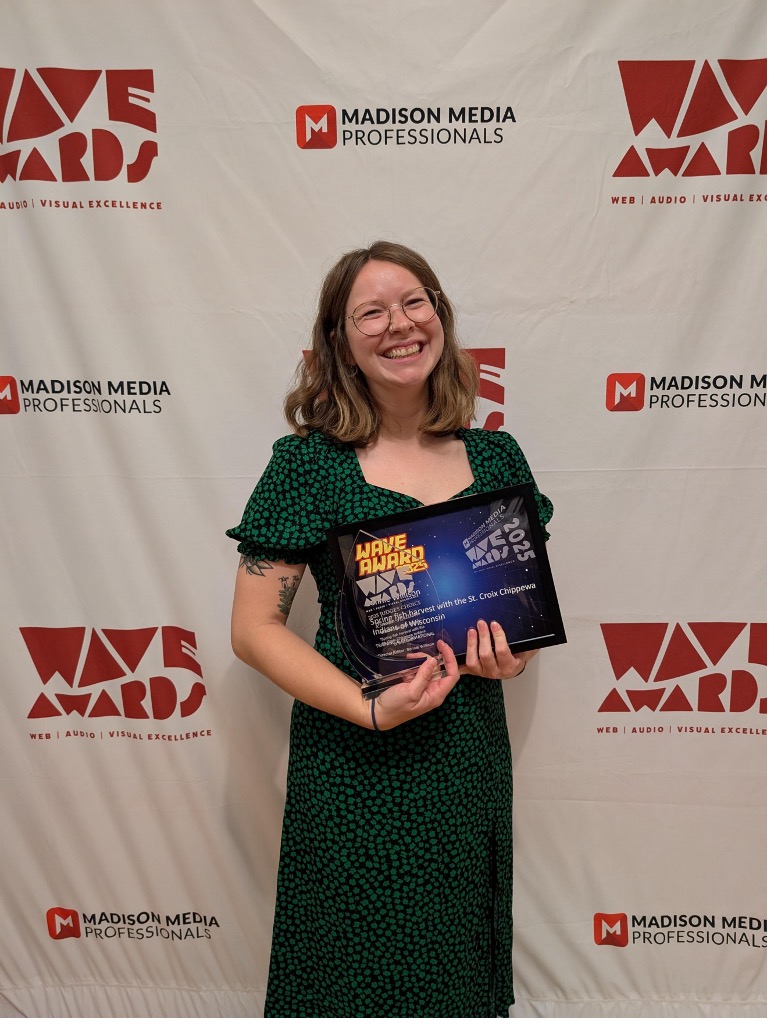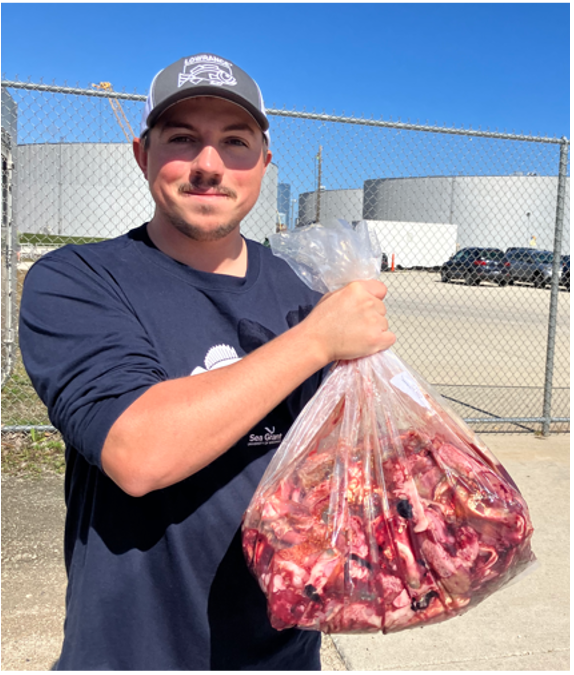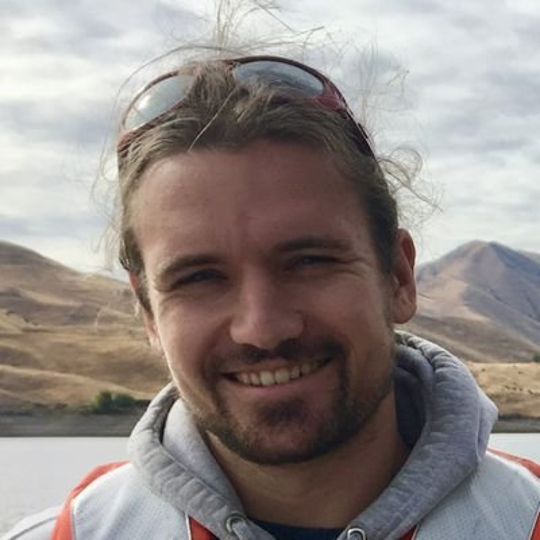For Nicole Ward, Wisconsin Sea Grant’s current J. Philip Keillor Great Lakes Fellow, returning to Madison for this opportunity has brought her academic journey full circle.
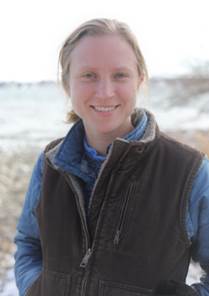
Keillor Fellow Dr. Nicole K. Ward (Submitted photo)
Ward earned her bachelor’s degree in biology from the University of Wisconsin-Madison just over a decade ago, then left the Badger State for graduate studies in Idaho and Virginia. Yet Ward was eager to get back to the Upper Midwest and work on Great Lakes topics—making the Keillor Fellowship, which began June 1, an excellent fit for the newly minted Ph.D.
She is based at the Wisconsin Department of Natural Resources (DNR) Office of Great Waters, where she works closely with Madeline Magee, monitoring program coordinator, and Cherie Hagen, the Lake Superior Basin supervisor. Ward is also active in the Great Lakes Working Group of the Wisconsin Initiative on Climate Change Impacts (WICCI).
Broadly speaking, her focus is on incorporating climate change resilience planning into the DNR’s Great Lakes projects. The three main projects she’s associated with are:
- The WICCI Great Lakes Working Group report, expected to be published online in late September. The report summarizes climate change effects on Great Lakes ecosystems and covers some potential solutions.
- Great Lakes coastal wetlands: assessing the condition and resiliency of Wisconsin’s coastal wetlands in the face of climate change. This, in turn, could inform the prioritization of wetlands for restoration or protection.
- Developing climate adaptation resources and information for DNR Office of Great Waters staff to ensure climate resiliency is built into all projects involving the Great Lakes and Mississippi River.
The range of duties draws upon Ward’s passion for freshwater ecosystems, but also allows her to grow her skillset. “I’ve worked in multiple other types of freshwater ecosystems, like rivers, streams, lakes and reservoirs, but this will add to my repertoire through working on the Great Lakes and coastal wetlands,” she said.
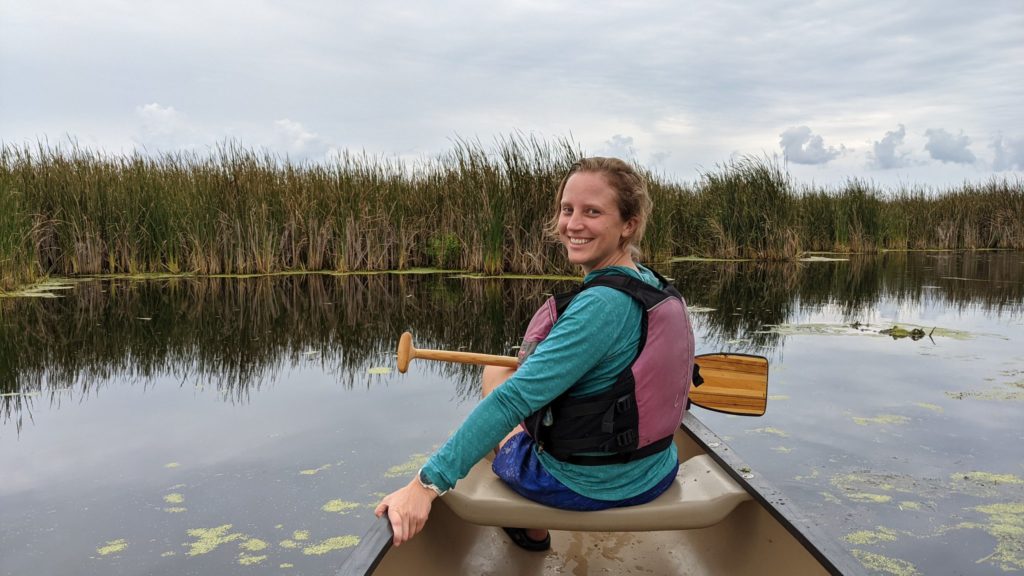
Nicole K. Ward explores some of Wisconsin’s waters by canoe. (Photo: Titus Seilheimer)
A native of Rochester, Minnesota, Ward spent three years with the Minnesota DNR working on native mussels and stream ecology after earning her bachelor’s degree.
Those years with the Minnesota DNR set her future direction in motion: “It was while snorkeling and scuba diving in the streams and rivers of Minnesota that I began seeing the effects of land management and decision-making that were far removed from the stream itself,” she said. “I had an ‘aha moment’ while working there, when I decided I needed to learn more about how people make environmental decisions, and how those decisions may change in response to changing ecosystems. The ever-changing and complex Great Lakes Basin is really the perfect place to apply my skills in understanding feedbacks between ecosystem change and human decision-making.”
After a master’s degree at the University of Idaho in water resources, doctoral work in biological sciences at Virginia Tech followed. There, she examined land use and climate change over the course of 31 years in the Lake Sunapee watershed in New Hampshire.
During her time at Virginia Tech, she also worked with a local lake association to co-produce an online, interactive data visualization tool for communicating with landowners about lawn management practices. She collaborated with a social psychologist to develop the tool and gauge its effectiveness.
This points to another area of interest: science communication and finding effective strategies for connecting with varied audiences. One of the key things she learned from working with the psychologist, Ward said, was that “Simple messaging is better. While you see that in the literature, this experience was a really direct, personal reality check of just how simple you need to keep things if engaging with a particular audience for the first time about a topic.”
The human dimension of environmental decisions is a throughline in her work. Said Ward, “A foundational part of how I think about myself as a scientist is to fully recognize that people make environmental decisions based on much more than just scientific evidence. Water issues are never actually about the water, they’re about the underlying values and priorities of people, and people have more shared values than we often recognize.”



